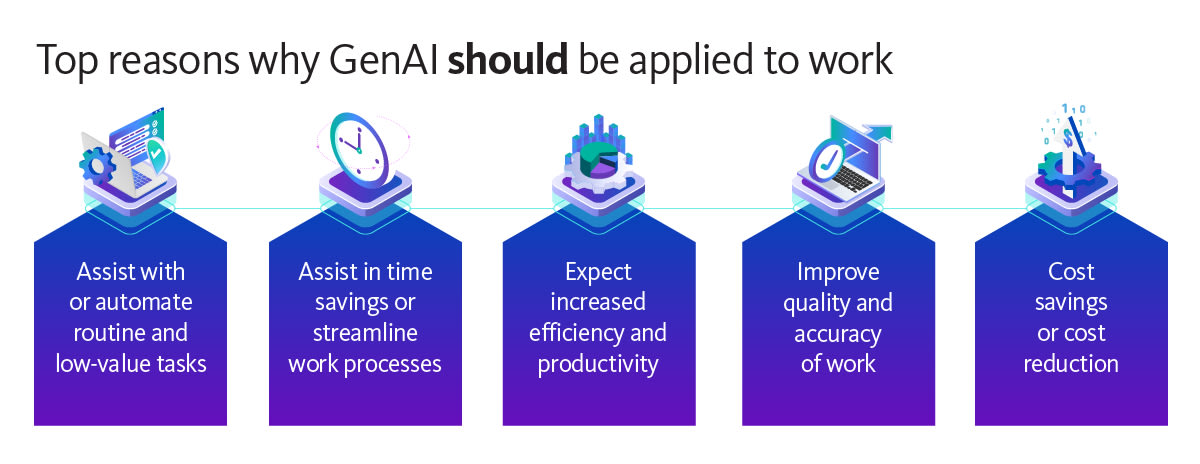The opportunities and risks using GenAI for legal review
As generative AI (GenAI) continues to make its mark across industries, many legal professionals have now encountered its capabilities, with 59% of law firms and 57% of corporate legal departments believing GenAI should be implemented. In legal review workflows, GenAI offers exciting opportunities to enhance efficiency and insight, but it also introduces new risks that must be carefully managed.
Learning from the past: Innovation in legal tech
The legal industry has long been shaped by technological advancements. Following the surge of electronic data into the discovery process, solutions like deduplication, near-duplicate detection, and email threading became widely accepted. These tools offered clear, testable value and improved the accuracy and speed of document review.
Later came Technology-Assisted Review (TAR), and more notably, TAR 2.0, also known as Continuous Active Learning (CAL). While the internal workings of TAR 2.0 remained somewhat opaque, its results were tangible. Legal teams quickly saw its effectiveness through relevance scores assigned to documents — proving its utility even to non-technical users.
GenAI: A new frontier in eDiscovery
GenAI represents the next evolution. Unlike earlier tools that assigned numeric relevance scores, GenAI can now provide contextual explanations—describing why a document is relevant. This leap transforms the user experience and enhances decision-making, offering deeper transparency and greater confidence in review outcomes.
However, with this power comes increased responsibility. GenAI models, if misapplied, can introduce bias or error. Understanding these risks and embedding governance into your AI implementation is critical.
The path forward: Trusted partnerships and purpose-built solutions
As with earlier innovations, success lies not just in the technology itself, but in the way it’s deployed. Organizations should partner with providers that have deep expertise in legal workflows and a proven track record.

At Conduent, we’ve been at the forefront of AI-driven eDiscovery for over a decade. Our mission is to deliver secure, scalable, and cost-effective AI solutions tailored to the legal industry. We’ve built our success through strategic collaboration with leading law firms and corporations, helping clients embrace innovation while safeguarding compliance and defensibility.
Final thoughts
GenAI is still in its early stages within the legal sector, but its potential is undeniable. By applying lessons from past innovations, aligning with trusted partners, and staying vigilant about risks, legal teams can unlock new levels of performance in their review workflows —ushering in a smarter, more agile future for eDiscovery.